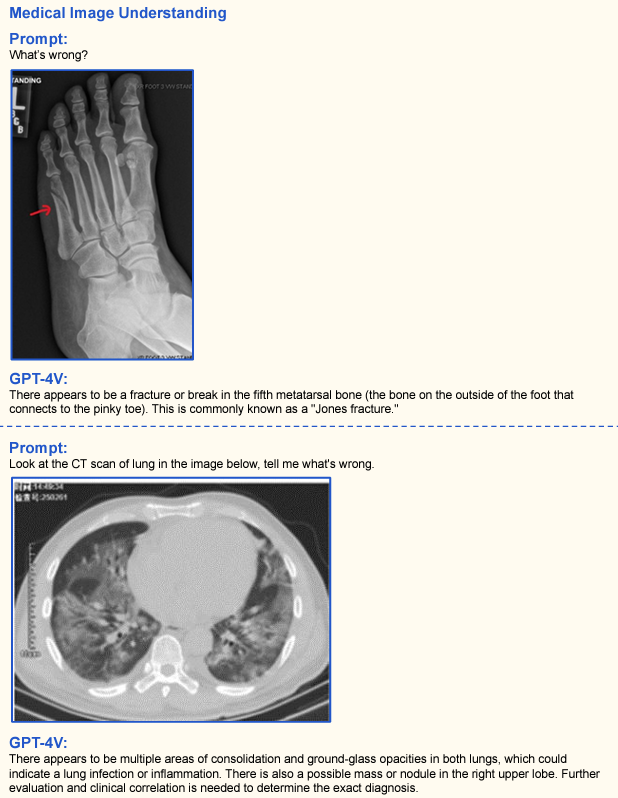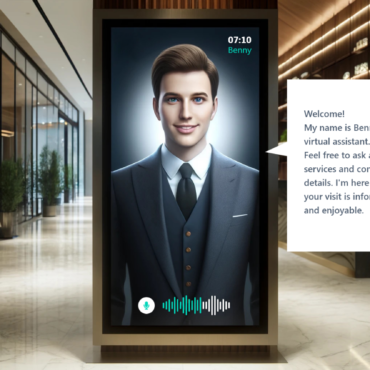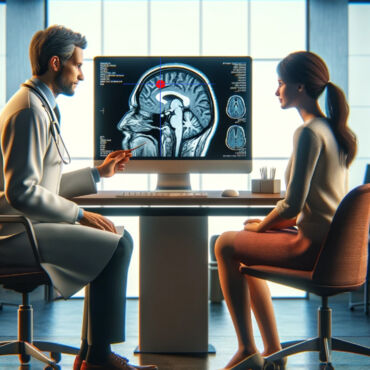Generative AI in Healthcare: Potential Use Cases
The Future of Medical Innovation
Generative AI is showing a great potential in many areas of our lives. One of the particuarly interesing areas in terms of it’s potential impact is healthcare. This technology can contribute to important developments in medical research, patient communication and the accuracy of diagnoses. Yet this change is still in its early stages. Integrating generative AI into healthcare requires addressing a complex set of challenges and opportunities that suggest these technologies could soon play a critical role in transforming medical practice. In this article, we review three promising use cases of generative AI in healthcare and explore the challenges associated with introducing these innovative technologies into medical practice.
What is Generative AI?
Generative AI, a branch of artificial intelligence, is reshaping how we approach data creation. It’s designed to produce new, unique outputs, including text, images, and audio, marking a significant shift from traditional AI systems. The evolution of this technology is exemplified by Large Language Models (LLMs) and Large Multimodal Models (LMMs) like GPT-4V. These models are trained on extensive datasets, enabling them to generate human-like text and realistic images.
What sets Generative AI apart is its versatility. It can tackle various tasks using a single comprehensive model, which simplifies the process by reducing the need for specific training for each task. This adaptability makes Generative AI valuable in many areas, especially in healthcare, where it can assist in tasks ranging from data analysis to patient interaction.
In healthcare, this technology opens up new possibilities for innovation. Let’s delve into how Generative AI is paving the way for transformative applications in this field.
Potential Use Cases for Generative AI in Healthcare
1. Synthetic Medical Data Generation
One of the most promising applications of generative AI in healthcare is the potential to generate synthetic medical data. This technology could address the significant need for extensive, privacy-compliant datasets in various healthcare areas. By generating detailed, simulated patient data, it could offer datasets tailored for specific needs, accelerating research and upholding ethical standards. Beyond research, synthetic medical data could significantly enhance the training of AI systems, enrich medical education, and facilitate rigorous testing of healthcare systems, illustrating its broad potential across various healthcare applications.
However, the creation of synthetic medical data is not without challenges, especially if the data should be used for training AI models that should support the medical diagnosis process.
Constructing an AI system for healthcare needs to meet many criteria and for that, the collaboration of engineers, medical professionals and regulatory experts (responsible for the medical certification processes) is crucial. Before including it in further developments, data is validated to ensure the image is clinically relevant and accurate. Generated images may not be accepted in many cases, because of regulatory constraints, even real images are rejected over lack of some metadata or other certification-related issues. The usage of synthetic datasets can be very complicated from the perspective of describing the training cohort, including e.g. the missing demography data. As the medical devices regulations still don’t have a final shape in regard to AI, the usage of synthetic data can potentially be one of the aspects that will need to be analyzed by the issuing institutions.
2. AI-Enabled Communication Tools for Patient Engagement
In the current healthcare environment, clear and effective communication with patients is essential. Generative AI models, such as GPT-4, can significantly contribute to this aspect by powering chatbots capable of simplifying complex medical information. While these AI tools are not meant to replace physicians, they can provide substantial support to healthcare professionals. Their ability to make medical information more comprehensible can help in effectively conveying medical findings and treatment plans to patients.
Such AI-enabled communication tools could play a critical role in enhancing patient experiences. They offer a way to ensure that patients feel acknowledged and thoroughly cared for, bridging the gap between medical expertise and patient understanding. Additionally, by quickly addressing patients’ immediate queries, these tools can improve the inclusiveness and overall effectiveness of communication in healthcare settings, offering tangible benefits for both patients and medical professionals.
3. Enhanced Diagnostic Accuracy through Advanced Medical Imaging
Medical imaging is fundamental in diagnosing and treating diseases. The integration of Generative AI, particularly models like GPT-4V from OpenAI, shows significant potential in enhancing medical imaging tasks, such as image analysis and radiology report generation. A recent study highlights the GPT-4V model’s proficiency in analyzing medical images, identifying specific conditions, and pinpointing potential areas of concern. For example, GPT-4V can accurately interpret a foot X-ray to identify a fracture and assess a lung CT scan to detect signs of infection, inflammation, or potential masses. Such advanced analysis by GPT-4V suggests that Generative AI could be a game-changer in medical diagnostics, offering detailed and precise interpretations of medical images to assist clinicians. However, it’s crucial to recognize that GPT-4V, like any AI model, can produce ‘hallucinations’ or incorrect interpretations. This underscores the importance of having medical professionals validate the AI’s output, ensuring the reliability and accuracy of the diagnostic process.

Addressing Implementation Challenges
While the potential of generative AI in healthcare is significant, its integration is not without challenges. Beyond the technical innovation, these applications require rigorous validation, ethical considerations, and strict compliance with regulatory standards. The healthcare sector’s commitment to patient safety and data privacy necessitates a cautious and deliberate approach to adopting new technologies. As we explore the potential of generative AI in healthcare, it is vital to ensure that these innovations are reliable, safe, and ethically sound.
The path to integrating generative AI in healthcare, especially concerning medical certification, is particularly complex due to the dense web of regulations. The meticulous process of meeting regulatory requirements is a testament to the sector’s focus on patient safety and the effective delivery of care. At this juncture, the technology is in a continuous process of improvement and refinement to align with the strict standards of healthcare.
Despite these challenges, we believe in the potential of generative AI to revolutionize healthcare. It’s a matter of time and dedicated effort before these advances can be fully harnessed. We envision a future where generative AI not only meets but exceeds current healthcare standards, becoming an indispensable tool in medical practice. With sustained innovation and responsible development, generative AI is poised to significantly impact healthcare delivery and patient outcomes.
Who are we?
At theBlue.ai we use many years of experience working on AI projects, including working with the generative AI architectures, to find the best-suited solutions to your business challenges. We can help you with data optimization and integration of the systems.
Our team has a deep understanding of the technical aspects of prompt engineering and Generative AI, including the use of Natural Language Processing (NLP) and Machine Learning (ML) to create more personalized and effective solutions. We can help you leverage the power of Generative AI to generate text, images, and other media that are tailored to your specific needs and objectives.
To ensure the success of your Generative AI implementation, we work closely with you to understand your business goals, data requirements, and technical infrastructure. We then develop a customized solution that meets your specific needs, leveraging the latest tools and techniques in AI.
Whether you are looking to optimize your customer experience, streamline your operations, or develop new products and services, our team can help you unlock the full potential of Generative AI. Contact us today to learn more about how we can help you achieve your business goals through AI-powered solutions.





